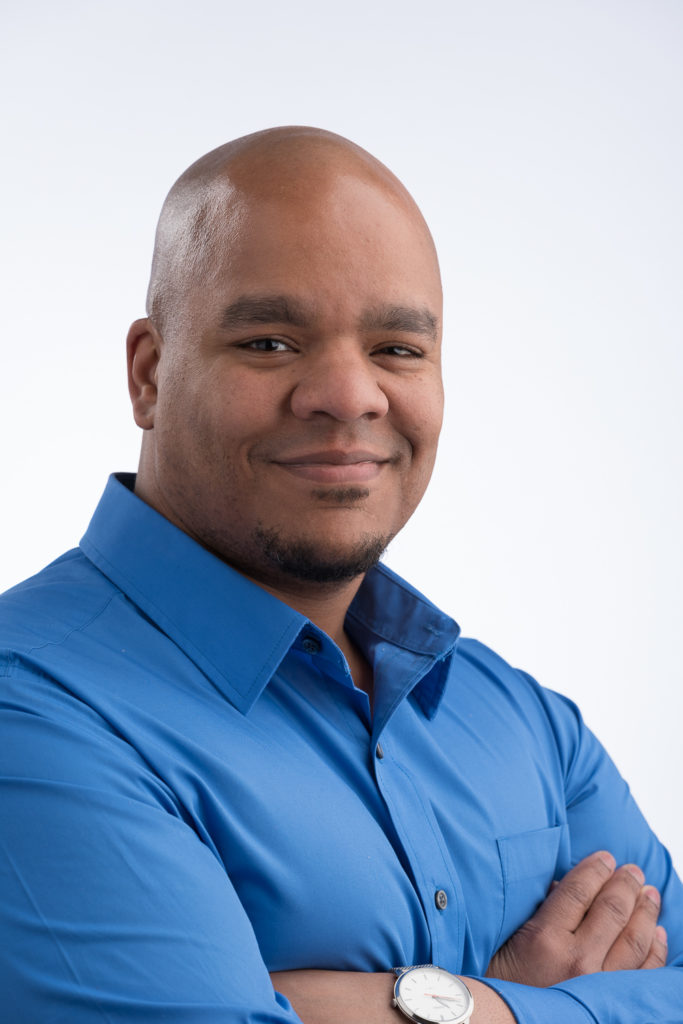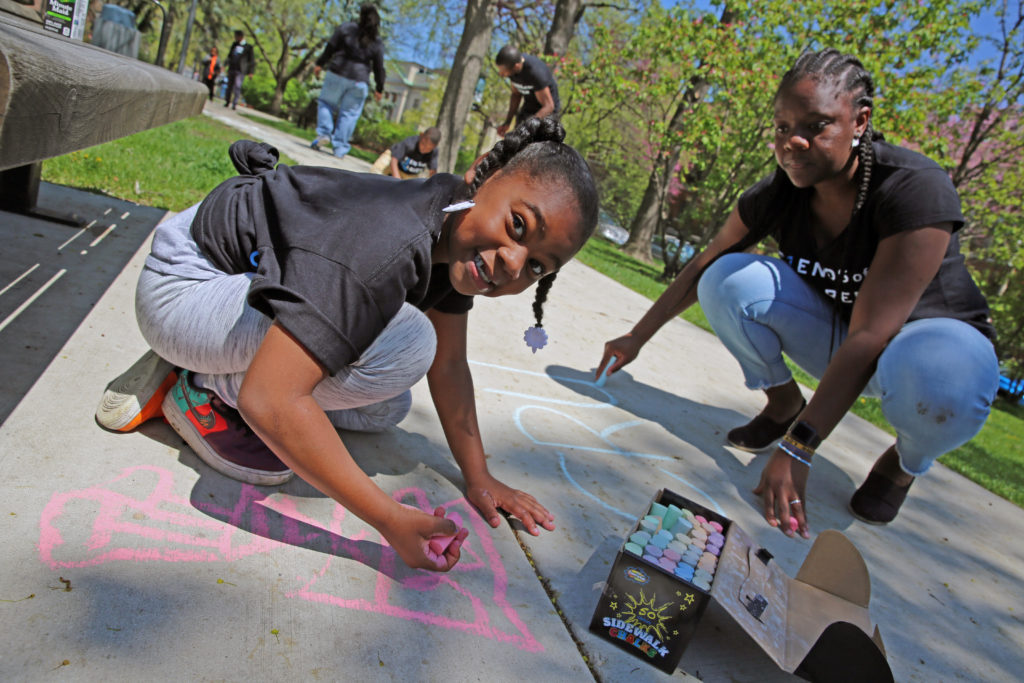Every teacher and principal I know right now is asking the same question: “How do we support our young people and their families through this terrible time?” Though teachers won’t and can’t do exactly what this group does, Friends of the Children-Chicago offers a valuable example of whole-family support that includes learning.
Back in December, I wrote about Friends of the Children-Chicago and their vital work supporting some of the city’s most vulnerable kids and families. They work hard to find the children who most need support and stay with each child from kindergarten through high school graduation and beyond. Though the program is still new to Chicago, it has a strong track record of success elsewhere in helping young people break free of generational poverty.
In the world as we knew it before the pandemic, Friends of the Children’s adult mentors, officially known as Friends, were spending four hours a week in face-to-face contact with young children (kindergartners and first-graders). Half of that time was spent at school, and half on non-school activities. Friends are not ordinary mentors–they are experienced, salaried professionals who make this work a full-time job. The rest of their time was spent supporting and advocating for families in dealing with school, public agencies, the health system and more.
For most of us, especially those of us dealing with schools and children, the COVID-19 pandemic has shaken up the world as we knew it. So I recently spoke with Seth El-Jamal, program director for Friends of the Children Chicago, to find out how their work has changed. While Friends of the Children offers a unique program that is very different from the work teachers do, some of the principles on which they base their relationships with young people seem relevant, especially in these times of crisis.

First off, Friends, like teachers, are switching from face-to-face connection to remote connection. El-Jamal oversees a team of eight Friends, each of whom is responsible for eight children and their families. “COVID-19 has made that one-to-one support very challenging,” he told me. “Our kids who have Internet access and phones, we build relationship any way we can virtually.”
For Friends, Relationships Come First, And Learning Can Help Build Trust and Safety
El-Jamal and the Friends team know there is no way young children will spend a long time on the phone or a Zoom call. “If a kid is six or seven, they don’t spend time talking on the phone,” he noted. “We have to guide those conversations or activities over the phone.”
Friends are adept at weaving learning into their supportive mentoring. “Our biggest focus, especially with the little ones we have, is on developing the love of learning. We know reading to a child who has gone through trauma is not just educational, it’s therapeutic.” They also engage in remote activities with kids, like an alphabet scavenger hunt over FaceTime. “If we say, ‘find something in your house that begins with A,’ the kid might go to their room and grab their alligator toy and show it to us.'”
For Friends, the focus is on healing trauma first, formal academics second. “We are focused on helping kids feel safe enough to access the learning portions of their brain,” El-Jamal said. To get there, they start with helping children–and their parents–name their feelings. “For most of the kids we work with, ‘mad’ is the only feeling they allow themselves to feel. What we’re trying to help them understand is there’s always something under ‘mad.’ They’re not in a place to be vulnerable enough to say, ‘I felt embarrassed and that’s why I got mad.’ Or, ‘I felt sad and that’s why I got mad.'”
With help from their Friends, children begin to name more feelings, perhaps creating a list of five or so key emotions. “We help them name those emotions,” El-Jamal said. “After they name them, we try to create strategies, along with their parents about what to do when [they] feel each way. Then, parents also have the understanding and we help them all with the practice.”
Helping Families Get Basic Needs Met in a Pandemic
Right now, when direct contact with the young children takes less time because it’s virtual, Friends are taking more time to research and do the legwork to support families with their many basic needs–from how to get diapers and food to how to apply for unemployment. “Two moms gave birth in the last two weeks,” El-Jamal observed. Each of the eight team members is developing expertise in one area–from housing to obtaining a laptop through the Chicago Public Schools device distribution.
At the same time, Friends are taking on the delicate challenges of explaining the health risks right now and encouraging families to comply with shelter-in-place. “The way we talk about this is, if all our families stayed home, we wouldn’t be serving the right families,” said El-Jamal. “Some are not staying home. Some are endangering their kids by taking them out to get their hair done at a friend’s house. We try to be persistent and loving and let them know.”
Friends are also working with the challenges faced by older relatives who have assumed guardianship of their children. In one example, an older relative has asthma and hasn’t been well. The Friend working with the family has encouraged her to get tested for COVID-19, but the elderly woman is more afraid of doctors and getting COVID-19 by going to a medical facility than she is of having it herself right now. “If COVID-19 weren’t as prevalent, we’d be taking [her] to the hospital ourselves. We can’t really do that now. We’re trying to leverage our relationships as influence for them to get the help they need from people they don’t know. That’s one of the toughest parts of this kind of situation.”
Now’s the Time To Enjoy Learning, Not Force “Achievement”
The constant discussion about how schools and teachers can best focus their energies to support children now takes on added urgency due to the pandemic and the related economic shutdown.
One important point El-Jamal made to me is that for many families on the South and West sides, the challenges they feel most deeply in the moment are also ones they have faced for a long time. “Our families have been scraping and worrying about their kids’ health,” he said. “They’ve been dealing with this forever. Our families on the West and South Sides of Chicago have been staying inside for a long time. I respect their grit and stability.”
“I have seen more stability and strength in some of the parents who are going through the worst stuff,” he added.
As far as education goes, it’s a real need, but how to approach it is key to getting that need met, El-Jamal observed. “On the one side, yes, there does need to be more attention paid to the challenges of education.” But on the other, at this time, standard approaches to academics are often irrelevant and unhelpful.
“That kid may have a big packet of homework they never do,” he pointed out. “We may read a comic book with them. It may be Captain Underpants. If they look forward to that 10 minutes we are reading with them over the phone, that’s progress.” Or Friends may be playing a rhyme game with their young mentees, or practicing simple subtraction by putting five shoes together and taking away two. “That kind of stuff puts academics in a familiar, relaxed setting. We’re trying to remove the fear of learning versus forcing them to achieve.” That’s a lesson all of us would do well to take to heart.
To help Friends of the Children Chicago support some of the West and South Side families in greatest need, you can donate here.
Maureen Kelleher
Latest posts by Maureen Kelleher (see all)
- CPS Parents Wanted for Research Study - March 27, 2023
- Tomorrow: Cure Violence with #Belonging - August 17, 2022
- Still Looking for Summer Camp? - June 13, 2022
